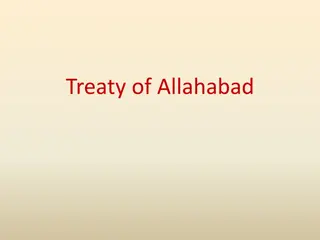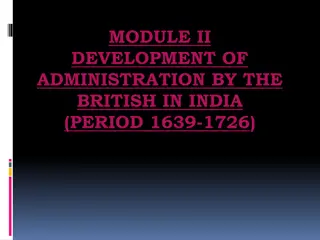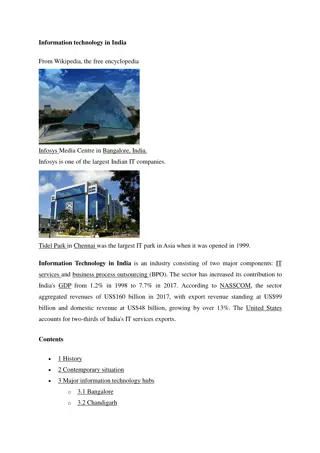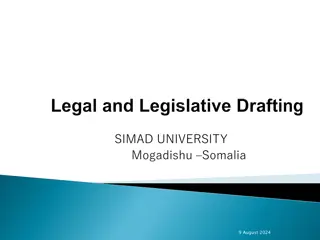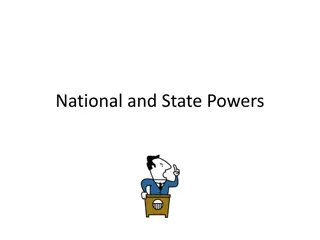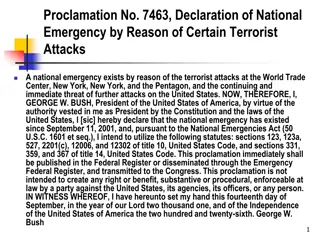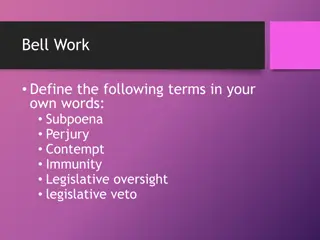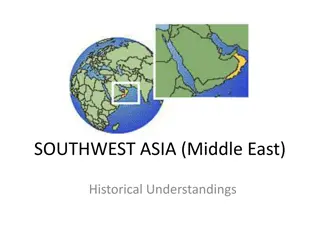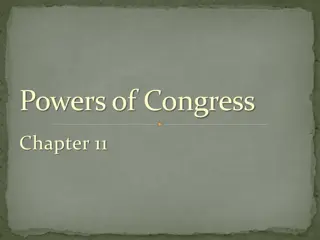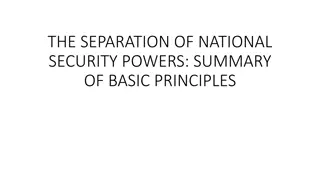Establishment of East India Company: Historical Overview and Legislative Powers
British rule in India started with the trading of spices by European nations in the 15th century. The English East India Company was granted exclusive trading rights in Africa, Asia, and America, eventually becoming a political force. Queen Elizabeth I granted a charter in 1600, giving the Company legislative powers to govern itself. The Company's management included shareholders, directors, and a Governor.
Download Presentation

Please find below an Image/Link to download the presentation.
The content on the website is provided AS IS for your information and personal use only. It may not be sold, licensed, or shared on other websites without obtaining consent from the author.If you encounter any issues during the download, it is possible that the publisher has removed the file from their server.
You are allowed to download the files provided on this website for personal or commercial use, subject to the condition that they are used lawfully. All files are the property of their respective owners.
The content on the website is provided AS IS for your information and personal use only. It may not be sold, licensed, or shared on other websites without obtaining consent from the author.
E N D
Presentation Transcript
Charter of 1600 & 1661- Legislative Powers-King s Commission Module 1 Himanshu Kumar Singh Assistant Professor of Law, IILS Coochbehar
Introduction British ruled India for about 200 Years. Once a prosperous India was reduced to third world country when Britishers left. What if we tell you that this all started with spices ? Britishers reached India via ships and started trading in spices. To regulate this business, British Crown established a company called "The Governor and Company of Merchants of London trading into the East Indies" aka(East India Company). At the end of the 15th century some European nations came to India as trading merchants. In year 1498, Vasco Da Gama, a Portuguese, discovered the passage to India round the Cape of Good Hope and he landed at Calicut on the Malabar Coast. The Dutch were the first in this field and English merchant followed them. The Danish came next but they were few in the numbers. All they made their own kingdom and fought the war for dominion. The English East India Company finally emerged victorious and developed its area of influence and finally established its empire in India. This company was granted exclusive trading rights in Africa, Asia (Including India) and America. The company which was established for commercial purpose slowly gained territories and established itself as political force within century.
History of Establishment of East India Company The English came to India in 1601 as a body of trading merchants on 31st December,1600 Queen Elizabeth I granted Charter to the Company which incorporated the London East India Company to trade into from the East Indies, in the countries and parts of Asia and Africa for a period of fifteen years subject to a power of determination of two years notice if trade was found unprofitable . The Charter of 1600 AD had been passed by British Queen Elizabeth-I on dated 31 Dec. 1600. In this Charter included the name of corporation, size, constitution, rights and liabilities. Name-The Governor and Company of Merchants Trading into the East Indies. Thus, the company became a juristic person with exclusive privilege of trade with the East Indies. The same Charter further granted legislative power to the Company to make by laws, ordinances etc. for the good government of company and its servants and to punish offences against them by fine or imprisonment according to the laws statutes and customs of the Realm. Duration of Company: i) the 15 years was given to this company for trade. ii) Meanwhile if the company is running in the loss then the British Govt. will withdraw legal recognition and if it gains profit that can be extended 15 year more. Contd.
Contd. Subsequently, in the year 1609 the Company obtained the extension benefit and availed some other facilities too. Territorial extension of trade- by this Charter company was allowed to trade from Capegood Hope to bay of Magellan, India, Africa, Asia, America, etc. Monopoly of Company-if any person started or start the trade without prior permission Company as well as Queen will be punished with fine, imprisonment, forfeiture of ship and goods or same punishment as queen so think fit. Management and administration-Company consisted with 24 share-holders, court of directors and Governor. The Court of Directors misuses the post and unexpected performance the majority share-holders could remove him. This East India Company had become the legal personality and enabled to keep the common seal and its use. Right to make laws-i) the company was permitted to make general laws. It was first time where any non-Governmental body authorized to make laws. ii) The company was allowed by Charter that it could give simple imprisonment fine and stroke and physical punishment for maintaining the law and orders of company. However, the Company was prohibited to make laws on following cases: Murder, treason and dacoities Company made laws must be justifiable and reasonable
East India Company The company was to have a life span of 15 years. Charter could be revoked also on two years notice. Exclusive trading rights to company. India, Asia, Africa and America fall within their geographical limits. Without a license from company no British subject Could carry on the trade in India. Unauthorized traders were liable to forfeiture of ships and merchandise. The affairs of the company were to be conducted on Democratic lines. Member of company constituted General Court. General court would elect annually the Court of Directors. The Court of Directors would consist of Governor General and 24 directors. Tenure of this Court of Director was one year.
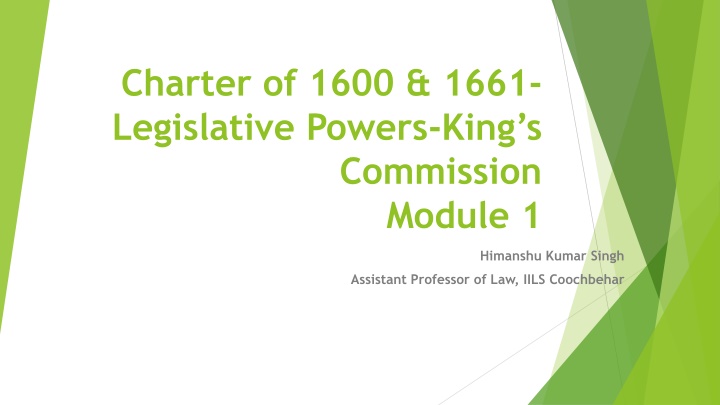

![READ⚡[PDF]✔ Emerging Space Powers: The New Space Programs of Asia, the Middle Ea](/thumb/21554/read-pdf-emerging-space-powers-the-new-space-programs-of-asia-the-middle-ea.jpg)

